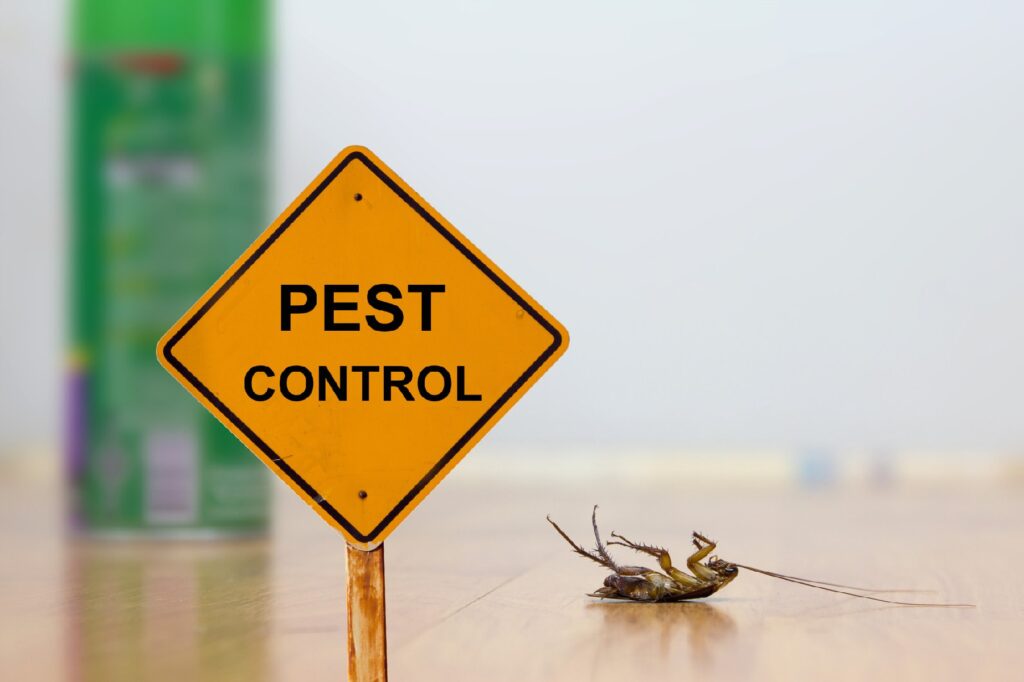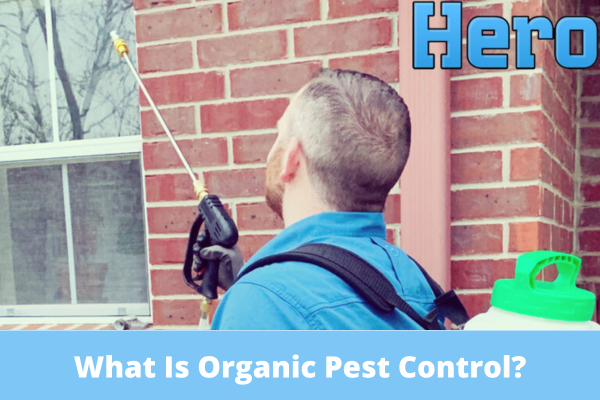Pest management is important in keeping our environments healthy, whether in our homes, gardens, or agricultural areas. On the other hand, traditional pest control methods frequently rely on synthetic chemicals that can be hazardous to human health and the environment. Organic pest management has grown in favor of a sustainable alternative in recent years. This blog will go over what is an organic pest control, its benefits and effectiveness, how it works, and when it’s necessary to seek expert help.

Organic Pest Control: Overview
Organic pest control uses natural and ecologically friendly pest management and elimination strategies. It entails using organic chemicals and techniques safe for human health, the environment, and beneficial creatures. Instead of standard pest control approaches that rely mainly on synthetic chemicals, organic pest control focuses on prevention, intervention, and long-term sustainable solutions.
Examples of Organic Pest Controls:
Biological Control
This method employs natural pest enemies to control pest populations. Aphid infestations in gardens can be effectively decreased by introducing predatory insects that feed on aphids, such as ladybugs or parasitic wasps. Biological control is a natural and sustainable approach to pest management since it promotes a healthy ecology.
Crop Rotation
Crop rotation is a farming practice that involves growing different crops in the same region sequentially over time. This approach alters pest life cycles, making it more difficult for them to establish and reproduce. Farmers can naturally lower insect populations and lessen the need for chemical pesticides by diversifying crop types.
Companion Planting
Companion planting places different plant species close together to promote development and discourage pests. Marigolds, for example, contain natural pest-repelling characteristics that can deter worms and aphids. Farmers can reduce pest damage and boost biodiversity by intercropping pest-resistant plants with susceptible ones.
Must Read: Organic Pest Control Methods
Natural Predators and Beneficial Insects
Promoting the presence of beneficial insects and predators can aid in the natural management of pest populations. Attracting birds, bats, or spiders to the garden, for example, can help to lower populations of undesirable insects such as caterpillars and mosquitoes. These natural predators can be supported by installing birdhouses and bat boxes or providing a diversified environment with native plants.
Organic Pesticides
As a last resort in organic pest control, organic pesticides produced from natural sources can be utilized. Neem oil, pyrethrin, and diatomaceous earth are a few examples. These compounds are non-toxic to people and other species and degrade quickly in the environment, reducing their impact.
What Are the Advantages of Using Organic Pest Control?
Environmentally Friendly: Organic pest control approaches promote environmental health. They reduce pollution and the detrimental impact on ecosystems, water sources, and wildlife by minimizing the usage of synthetic chemicals.
Human And Animal Safety: Organic pest management uses natural, less hazardous ingredients for humans and non-target animals. It reduces the risk of chemical exposure, boosting people’s and pets’ health.
Long-Term Sustainability: Organic pest control approaches emphasize preventative and environmentally friendly practices. They can provide long-term pest remedies by fostering natural balances in ecosystems rather than relying on the regular application of chemical pesticides.
Beneficial Organism Preservation: Organic pest control aims to maintain beneficial insects, birds, and other species that play important roles in ecosystems. It preserves biodiversity and supports a healthier and more balanced environment by avoiding indiscriminate pesticide use.
Is Organic Pest Control Effective?
When used effectively, organic pest control methods can be extremely effective. However, it is critical to recognize that organic pest management frequently necessitates a more holistic approach and may not deliver immediate benefits like conventional chemical pesticides. Instead of simply targeting bugs, organic pest control aims to address the underlying issues contributing to pest problems.
Organic pest control treatments are most effective with a comprehensive pest management strategy. This may comprise a combination of preventive measures, cultural practices, biological controls, and, where necessary, the targeted application of organic pesticides. Patience and ongoing monitoring are required to obtain long-term pest management results.
How Does Organic Work?
Organic pest control is based on the following principles:
1. Prevention:
The emphasis is on preventing pest problems from occurring. This entails
Implementing excellent agricultural techniques, such as proper sanitation, crop rotation, and weed control, to limit pest habitats and development circumstances.
2. Intervention:
When pest numbers reach a certain threshold, organic pest control technologies intervene to disrupt their life cycles and lessen their impact. This could include employing helpful insects, traps, barriers, or natural repellents.
3. Monitoring and Scouting:
Regular monitoring and scouting aid in the early detection of pest problems, allowing for prompt intervention. Farmers and gardeners may make informed decisions regarding organic pest management options by closely observing plant health and pest populations.
Inorganic vs. Organic Pest Control
Inorganic or conventional pest control, which heavily uses synthetic pesticides, offers fast results but also brings several issues. These chemical pesticides can pose health risks to humans and animals due to prolonged exposure or misuse. They can contaminate our environment, damaging non-target species and causing ecological imbalances. Pests may also develop resistance to these chemicals over time, reducing their effectiveness.
Conversely, organic pest management offers a sustainable and environmentally-friendly alternative. It utilizes non-toxic substances, ensuring safety for humans, animals, and the environment. Organic methods focus on preserving biodiversity and reducing dependency on synthetic chemicals, promoting a healthier ecosystem and contributing to long-term agricultural sustainability.
When to Hire a Pest Control Pro
While organic pest control methods can be highly effective, there can be situations where a more extensive intervention is needed. This is especially true for large-scale infestations, recurrent pest issues, or pests threatening human health, like termites or rodents, and spiders. In such cases, professional assistance is recommended.
Pest control pros have the knowledge, experience, and tools to manage pests effectively while ensuring safety. A reliable pest control company will conduct a thorough inspection, identify the specific pest problem, and implement a comprehensive and tailored treatment plan. They’re also skilled at preventative measures, helping you keep your property pest-free in the long run.
What’s Next?
Hero Pest Control is a company that prides itself on delivering top-quality pest control services. We are well-versed in conventional and organic pest control methods and committed to using safe, environmentally-friendly techniques whenever possible. Our team of experts works diligently to eliminate your current pest problem and provide strategies and treatments to prevent future infestations.
Organic pest control is a sustainable, effective way to manage pests, and we firmly believe in its advantages. We are ready to help you navigate pest control issues using safe methods for you, your family, and our environment. Call now!

